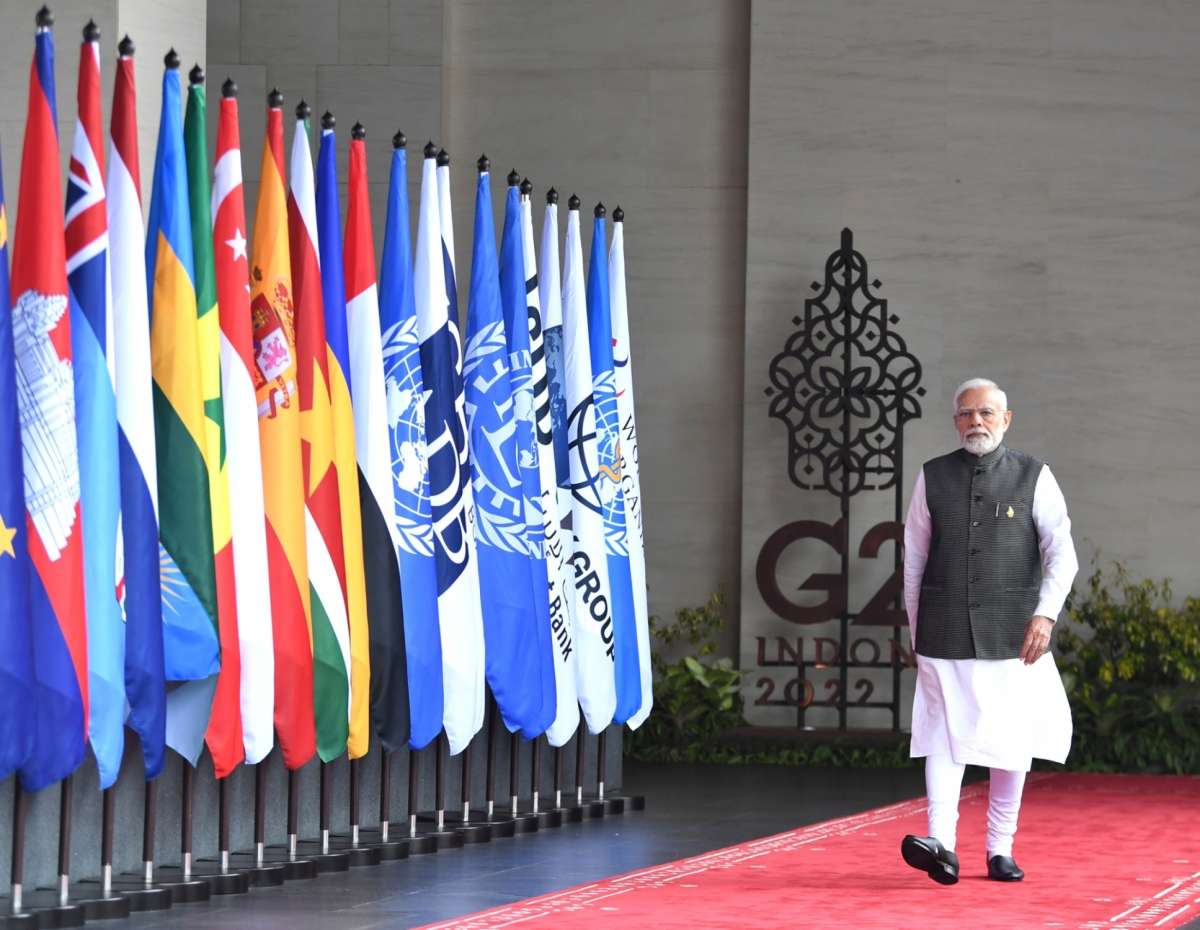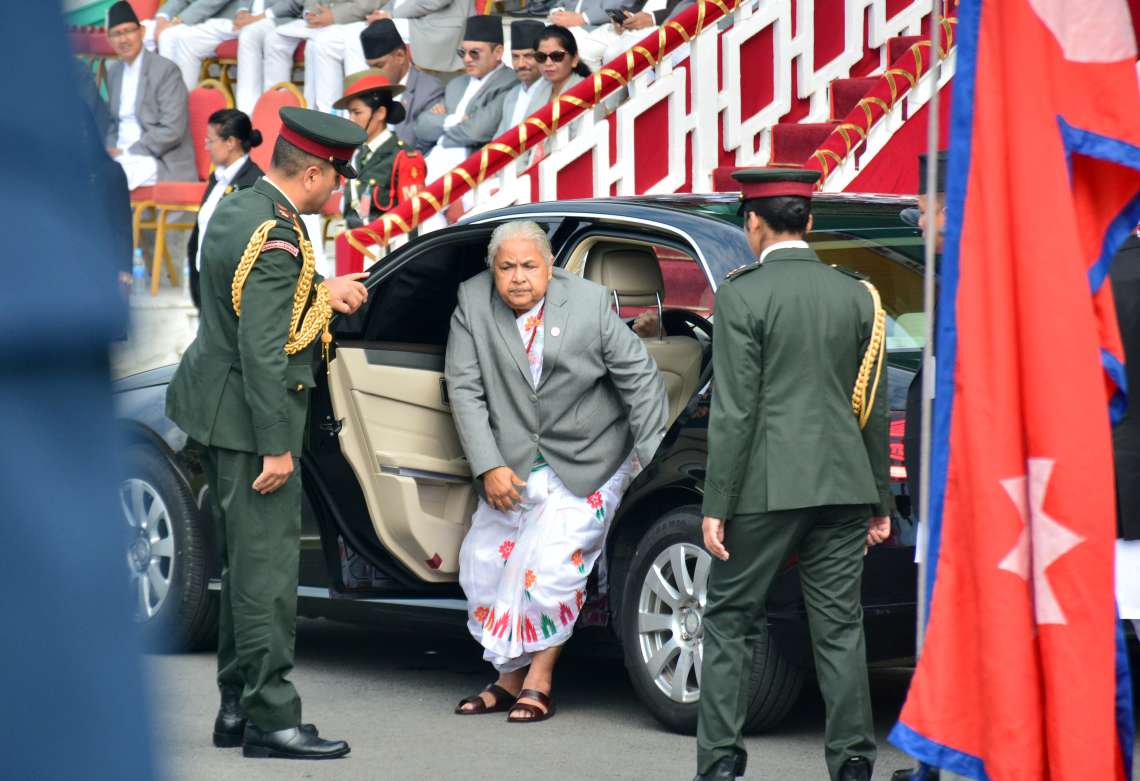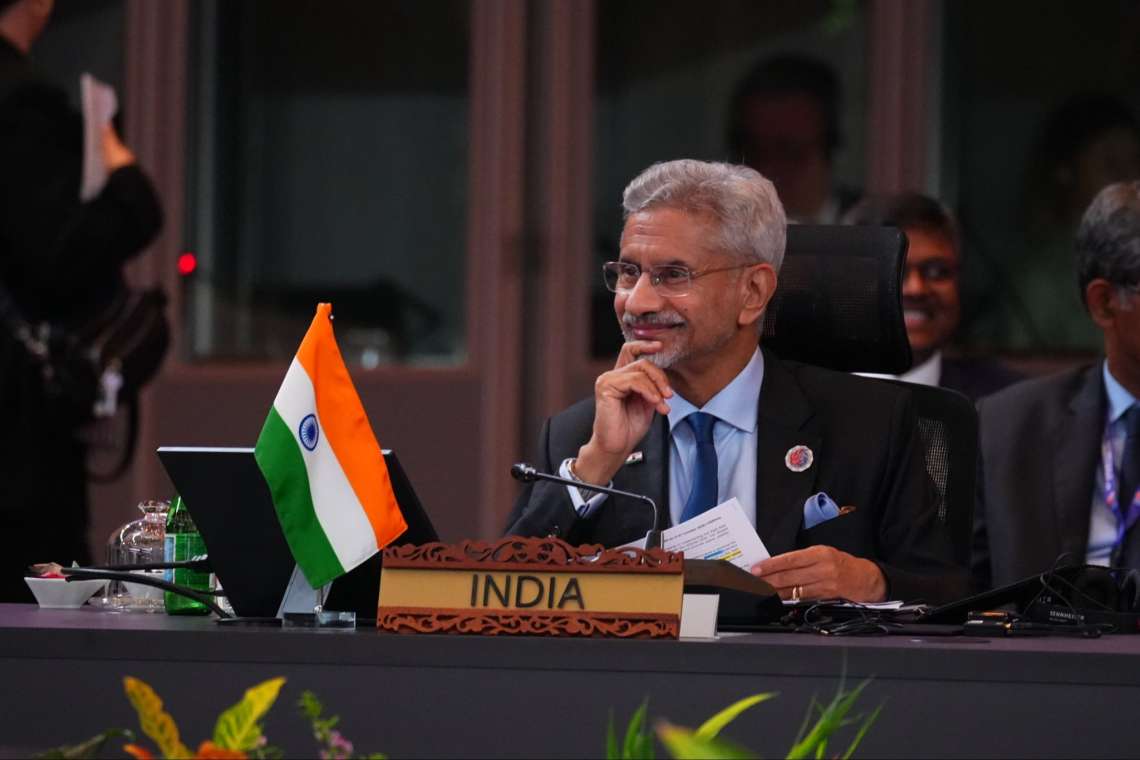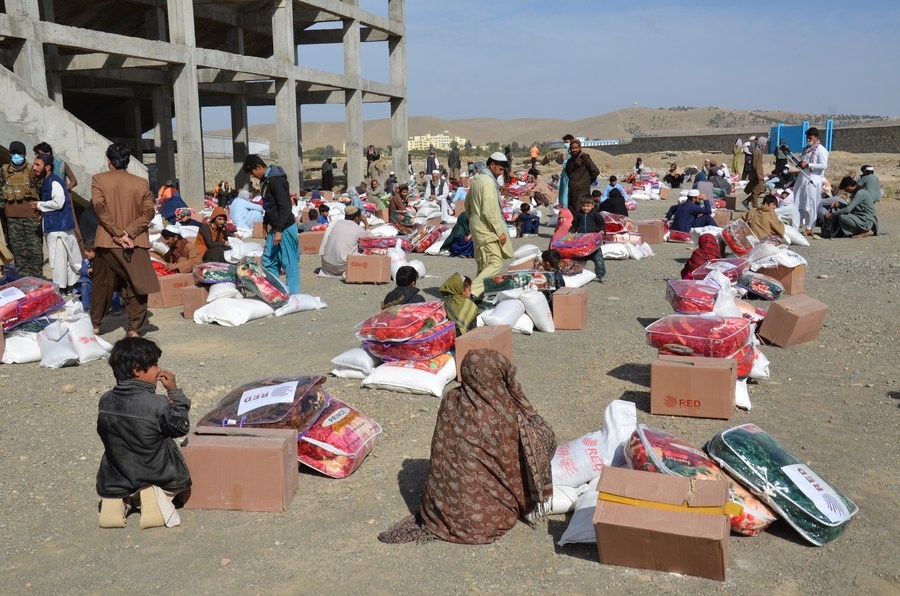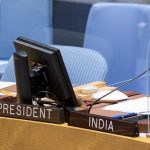While the presence of the EU in G-20 is welcome, what is needed is participation as full members of similar regional entities in Africa, South America and Asia, writes Prof. Madhav Das Nalapat
As institutions set up in the past falter and fail, the vacuum is getting filled by newer entrants. Under the leadership of Prime Minister Narendra Modi, the G-20 is being set on course to emerge as a replacement not only for the G-7 but even for the UNSC. Thanks to the death grip that the five veto-wielding powers have over the UNSC, it has become a case of 3+2=0. The Security Council has, in substance, if not in theatrics, become an irrelevance.
To this day, the United States, Russia, France and the United Kingdom are reluctant to prod the People’s Republic of China (PRC) into accepting a UNGA vote on admitting India into the UNSC Permanent Membership (most likely without veto power for the time being). The entry of India and later South Africa and Brazil into an expanded UNSC could revive the institution, but is unlikely to take place.
The G-20 was conceived by the G-7 as a vehicle where the latter’s wish list could be accepted wholesale by the other twelve countries in the grouping. To make doubly sure of this, the European Union (EU) was included as a member. The EU machinery is similar to that of NATO headquarters, with comfortable working conditions and ample salaries. NATO has during this century shown an unwillingness to enter into kinetic combat, except with foes that are far inferior in manpower and weaponry.
Even in such cases, NATO has usually been on the losing side, whether it be in Libya, Syria and Iraq (where a pro-Iran government was installed courtesy George W. Bush). In 2021, the Afghan military and people were abandoned by NATO to the non-existent mercies of the Taliban, with humanitarian consequences that were both ignored and denied by Washington, London, Paris and Berlin during the run-up to President Biden’a surrender to the Taliban in August 2021.
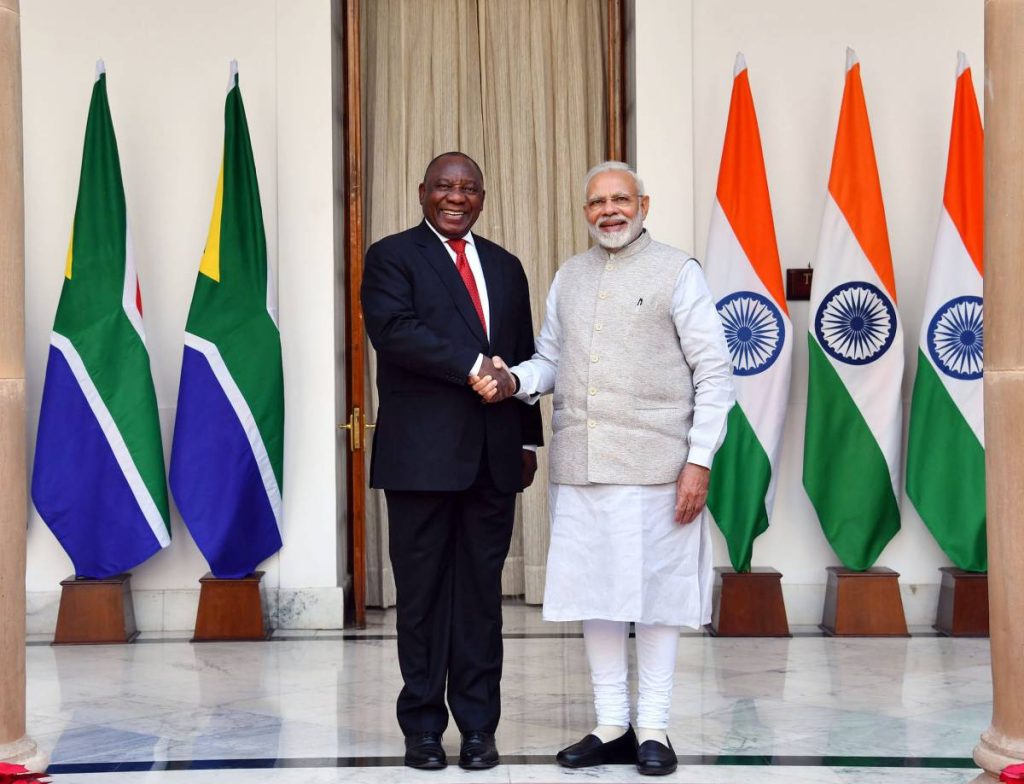
The same fate is on track in Ukraine, where that unfortunate country is being hacked to bits by tactics and strategies devised by the very NATO generals whose incompetence caused chaos in whichever theatre they were active in. Despite their aversion to kinetic combat, the risk is rising of a direct conflict between the Sino-Russian alliance and NATO on the plains of Ukraine, with 2023 emerging as a year where the prospect of this is higher than during the previous year.
The switch to local currencies among non-members that has been caused by wariness of the unilateral and unpredictable financial and other sanctions imposed on country after country by NATO member states has made calculations of GDP in US dollars an inaccurate portrayal of a country’s economic strength. Given that, by the close of the Modi Presidency, the G-20 is set to emerge as a keystone institution of the international order, especially as (unlike the UNSC), there are no differences in the class of membership. All are equal, as they should be in a world where leaders endlessly express faith in a common humanity while clinging on to exceptionalism and exclusivity.
While the presence of the European Union in G-20 is welcome, what is needed is to ensure the participation as full members of similar regional entities in Africa, South America and Asia. Such representation would make a G-24 or even a G-25 far more reflective of global realities than the present structure. Another innovation would be to have a permanent (although small) secretariat that could assist in coordination and monitoring.
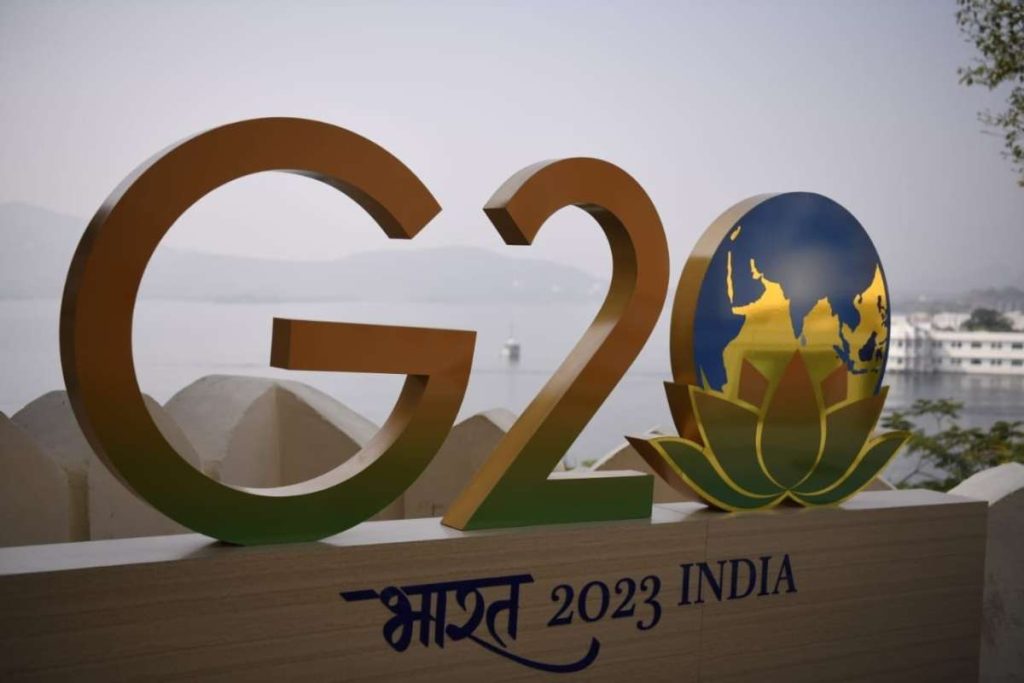
This could be located in one of the 19 countries that are part of G-20, preferably avoiding the trap of locating it in a high cost location, as was the case with numerous UN institutions. Thus far, the potential of the G-20 to become an engine of global growth in a sustainable way has been underplayed by many of its members, especially those that are part of the G-7. Under the Presidency of Prime Minister Modi, this is on track to change.
The potential of the G-20 (perhaps with an expansion in its numbers through the inclusion of significant regional groupings in addition to the EU) is likely to be placed on the path towards actualisation, if Modi has his way. That there ought not to be taxation without representation has been acknowledged as a truism, although denied by authoritarian governments. In much the same way, there ought not to be the placing of responsibility without participation in the processes which led to such decisions being taken.
Thus far, big powers have sought to impose their will on other countries. From the start of his tenure as Prime Minister in 2014, Prime Minister Modi has emphasised the importance of “Vasudhaiva Kutumbakam”, an implied equality among nations, just as among peoples. The sudden spurt in activities of the G-20 now that India has been made its leader during the coming year is palpable. 2022 was a year where global institutions were ineffective in preventing war or in promoting economic growth. Under India’s G-20 leadership, 2023 promises to be entirely different.


